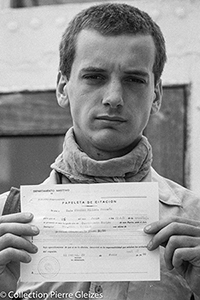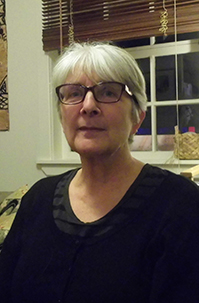Amelie David
AUCKLAND (Pacific Media Watch): Thirty years on, the Rainbow Warrior bombing in New Zealand is still a sensitive topic in France.
For some French people who know about it, it is a sad episode in history that they would rather like kept in the shadows. In his book Rainbow Warrior, Mon Amour, French environmental photographer Pierre Gleizes, who has recorded Greenpeace campaigns for many years on board the Rainbow Warrior, describes his shame when he learnt about what happened to "his" boat.
In his book Rainbow Warrior, Mon Amour, French environmental photographer Pierre Gleizes, who has recorded Greenpeace campaigns for many years on board the Rainbow Warrior, describes his shame when he learnt about what happened to "his" boat.
On 10 July 1985, after the ship had been bombed in Auckland by French secret agents, Gleizes had just got back to Paris from a reporting mission.
As soon as he walked into his press agency, his boss handed him a wire saying: "The Rainbow Warrior has been sunk".
Unbelievable. Just weeks earlier, his friend Fernando Pereira, a Portuguese-born Dutch photographer and member of Greenpeace, who was drowned in the Rainbow Warrior bombing, had visited him in Paris.
"I'm dismayed that my country's military could have committed this abomination at Fernando's expense,” Gleizes told Pacific Media Watch.
Agents trial
“The fact that it became a state affair didn't make my wounds any better and I never wanted to talk about this again.
“Even when Greenpeace came to Paris to commemorate the 20th anniversary of the sabotage, I tried to avoid journalists as much as possible."
A few months after the bombing, Pierre Gleizes travelled to New Zealand for the secret agents' trial.
"I noticed during the trial of the fake married couple Turenge – agents Alain Mafart and Dominique Prieur, that the self-sufficiency of a part of the French media couldn't make them see, and so correctly relay, some of the facts.
“Especially that the bombing had created in the South Pacific a huge anti-French feeling that would probably take a long time to go away.
“I will never forget the question I was asked when I entered in a bakery in Auckland and the owner, recognising my French accent, said: "Did you take off your flippers?"
Three decades later, the photographer still feels ashamed and sorry about what his country did.
Improved relations
Things have changed for sure. However, even if the relationship between New Zealand and France has improved, nothing can be forgotten.
"Time passing by can't erase such an act of war against a friendly country. The Rainbow Warrior affair is even part of the book called France's History for Dummies.” This is also how Elisabeth Degremont feels.
This is also how Elisabeth Degremont feels.
Living in Auckland for almost 40 years now, she still blushes when the topic comes up.
Last month, the French-born woman went to see a play called Fallout: The Sinking of the Rainbow Warrior. As soon as the four actors came on stage, Elisabeth was struck: "This play really shook me. I wanted to shout out loud: ‘I'm French and I want to apologise!’
“I know it's a little bit silly, but this is how I felt!"
Most French people I have met in Auckland would like to hear apologies from their government.
"There is no way we can justify what happened,” says Degremont.
‘Some excuses’
"Some excuses were made in the 1990s but there is more to do. Although, I doubt that it's going to happen this year."
Another Auckland-resident French citizen, Ponsonby dance teacher Géraldine Clermont, says victims need to be recognised.
“It's like with what happened during World War II with the Vichy government, or in Algeria during the war of independence. We need to recognise what we did,” she says.
Born in October 1985, just three months after the bombing, Clermont has lived in Auckland since 2011. She was one of the organisers of a “Je Suis Charlie” rally in Auckland in protest over the jihadist terrorist massacre of 11 people at the Charlie Hebdo satirical magazine in Paris on January 7. According to photographer Pierre Gleizes, it's just impossible for what needs to happen to take place: A genuine official French government apology for the attack by French secret agents and for the death of Fernando Pereira.
According to photographer Pierre Gleizes, it's just impossible for what needs to happen to take place: A genuine official French government apology for the attack by French secret agents and for the death of Fernando Pereira.
“Let’s stop dreaming! The military nuclear lobby is too powerful.”
Apologies or not, after 30 years there is still a wall of shame.
Amelie David is a French journalist who has been living in New Zealand for the past two months. She joined a group of AUT University students working on the Rainbow Warrior: 30 Years On project. In the video below, Pacific Media Watch's Alistar Kata interviews Amelie David and Pacific Media Centre director Dr David Robie.



